Stephen Michael Schwartz Plans 1975 Tour; Enter David Foster-EXCLUSIVE INTERVIEW PT. 3
Eventual multi-Grammy winner surrounds Stephen with rock'n'roll veterans.
For Part 1 of our exclusive interview with Stephen Michael Schwartz, click here. To read Part 2, which includes a deep dive into his 1974 debut album (again, in Stephen’s own words), click here:
PART 3:
While Stephen was in the studio, laying down tracks for his debut in early summer 1974, it occurred to him that, by now, he needed a manager. Traversing the often brutal landscape of the record biz in mid-’70s Hollywood required such an investment.
In fact, it was as urgently necessary as tossing a spiral-bound Thomas Guide on your back seat to help you navigate LA Freeways 5, 405, and 101 during rush hour.
Thankfully, it wasn’t long before he finally put it all together and realized why his road to this point had been so bumpy, and perhaps needlessly so:
“I chalk it up to my naïveté and not having a solid manager guiding me. I had no manager when I first signed with RCA. I had an attorney, Charles Meeker, who helped with the contracts, but that’s where his talent ended. I had no management.
“That was problematic from the start. There were so many business decisions to make and negotiate. I was busy in the studio putting the album together. So, the head of RCA West Coast, Don Berkheimer, suggested I meet with Sidney Seidenberg, from New York, who managed BB King, Gladys Knight and the Pips, and The Temptations.”
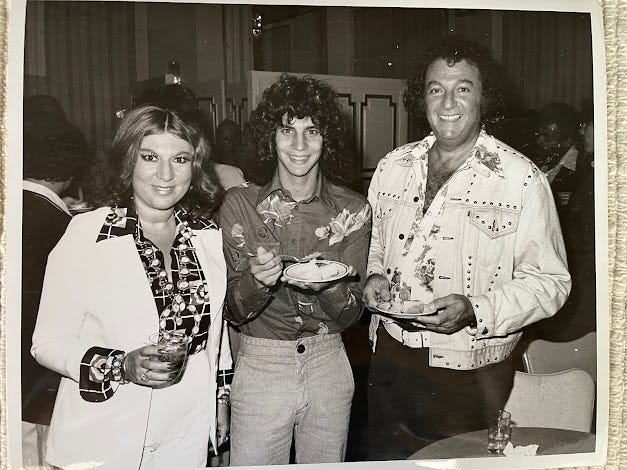
“It was an odd choice, but Sidney flew out to meet with me. We went to dinner and hit it off, and I signed with his management company. He went back to New York, and I didn’t see him again until I went back to New York for the BMI convention months later.” (BMI, Broadcast Music, Inc., since 1939, has been a non-profit music rights organization, a global leader in actively protecting the public performances of songwriters and their music.)
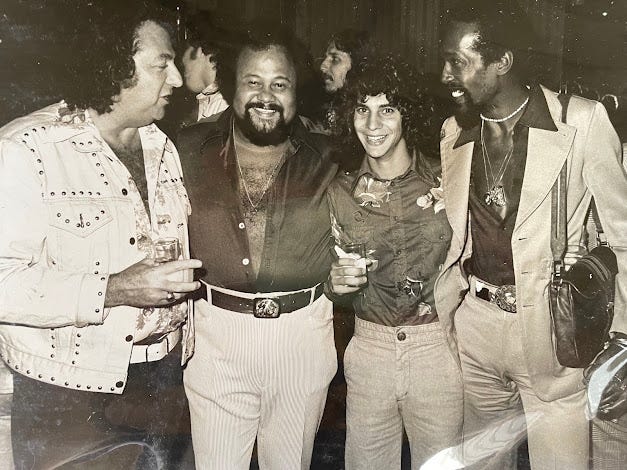
“Seidenberg’s west coast representative, a man named Danny Kessler, was my contact. If I needed Sid I had to call Danny first. What I really needed was a ‘hands-on’ manager. Someone creative.”
Schmoozing the Trade Pubs
One of the customary “chores” a recording artist has to endure when the album is released is rubbing elbows with those who write for the record industry trade rags (Billboard, Record World, Radio & Records, and in this case, Cashbox):
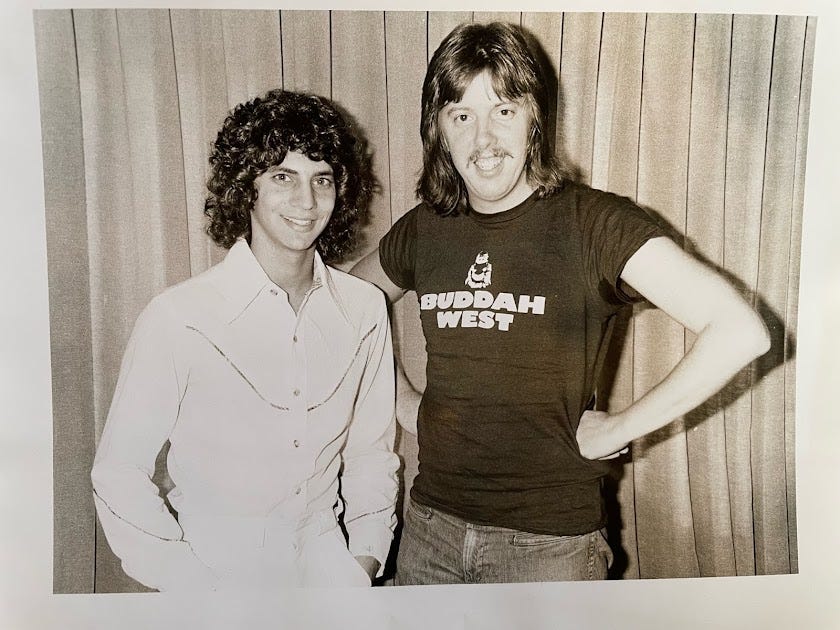
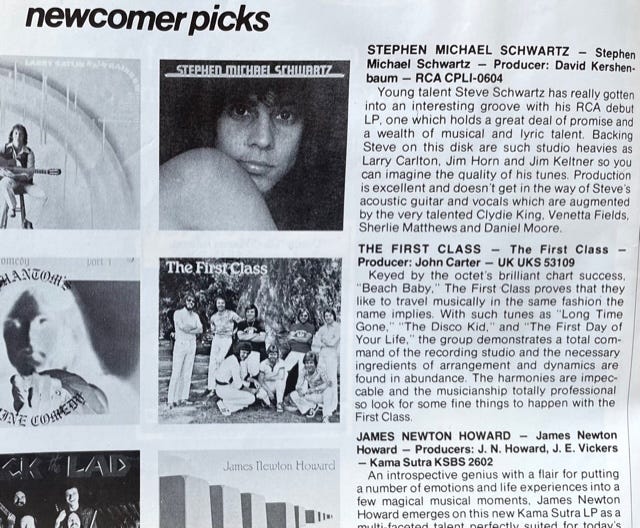
Stephen wraps up the debut album’s efforts: “The first single selected by RCA, “Rock Me Away,” was getting minimal airplay around the country. Then, the next single released was, “Get It Up For Love,” which featured a more radio-friendly Disco vibe.
“I was already thinking about and starting to write for the next album. I was hoping, but knew well that very few artists ever score on their first album. One such album that comes to mind is James Taylor’s 1968 debut on Apple Records.”
Assembling the Road Band
“With the self-titled debut Stephen Michael Schwartz finished, it was important to begin thinking about a tour. I needed to put together a band that was solid enough to duplicate the sound we got on the album. That’s a tall order given that I was primarily a solo performer, guitar and voice.
“I didn’t know anything about putting together a band to back me. I needed the musicians to be close to the caliber of the pros on my album, a very difficult task.
“Enter David Foster. Yes, that David Foster, eventual winner of 16 Grammy Awards and 47 nominations, and one of the most celebrated and acclaimed composer/producer/arrangers in all of music history. But, this is 1974, and David had just left his group, Skylark, after having a Top Ten hit, ‘Wildflower’.
“On a side note, Skylark was discovered in 1971 by producer/arranger Eirik Wangberg, who produced ‘Wildflower.’ Wangberg’s name, ironically, will come back into the story a bit later as the producer for my next album for RCA.”
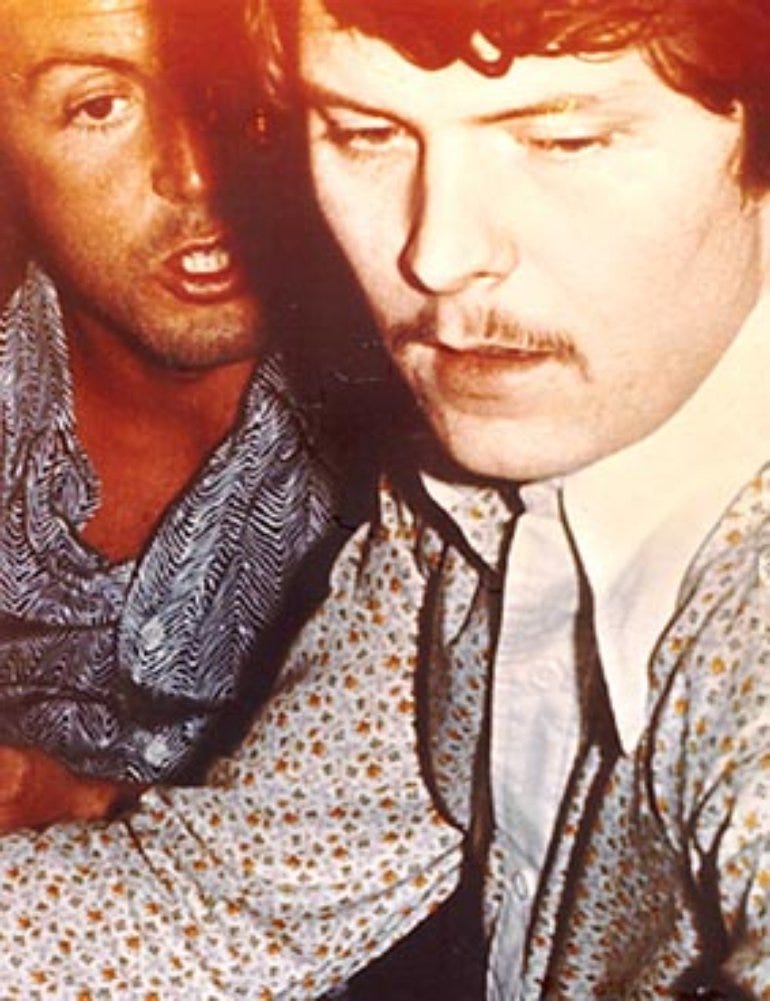
“David Foster and I were introduced by a mutual friend named Henry Marx, a fellow composer. Henry and I would remain friends throughout my career, and I would often come to him for solid advice in business, as well as for songwriting.
“Henry knew David and thought he would be a good resource for helping me pull together a solid touring group. I initially asked David if he would be willing to front the band as musical director and keyboardist. The idea is laughable now.
“Even in 1974, David was beginning to make a name for himself as a top-notch studio musician, so he declined my offer to tour.”
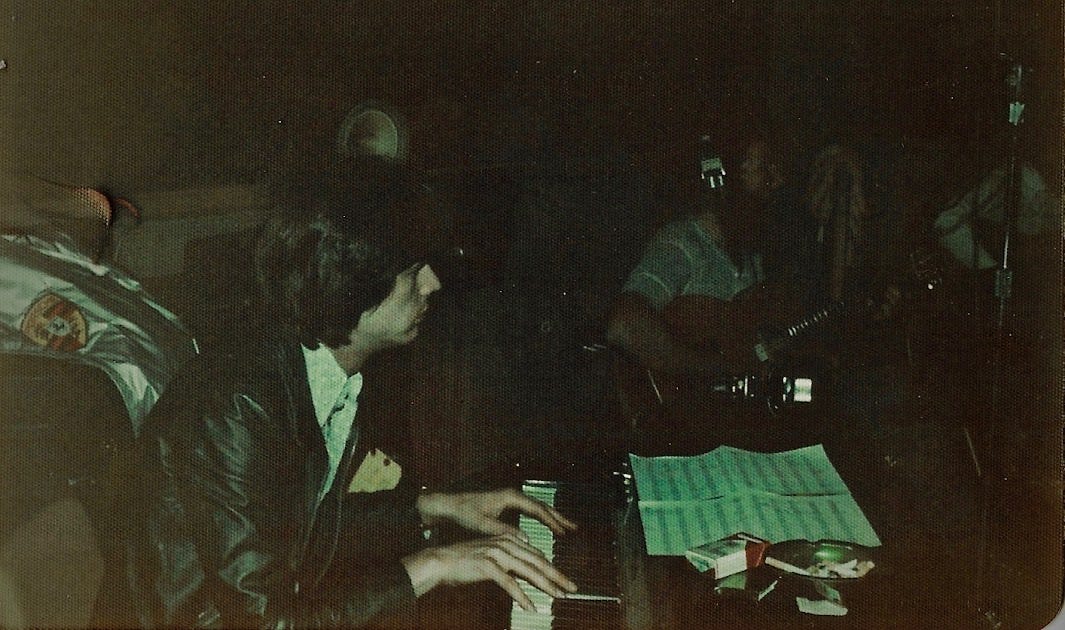
“He did, however, help me pull together some wonderful musicians: One was Canadian keyboardist, Robbie Buchanan, who, like Foster himself, went on to work with some of the biggest names in music: Whitney, Celine, Prince, Bowie, etc.”
Short video of Robbie Buchanan, discussing the traits needed by a musician to be a good, dependable session player:
“Once the band was assembled, we began rehearsals at SIR studios in Hollywood. This was a gargantuan collection of rehearsal rooms of all shapes and sizes. Besides being a place to rent equipment, amps, keyboards, drums, and more (thus the name Studio Instrument Rentals), SIR was the place everybody who was anybody came to get their live shows ready for the road.”

“One of the bands I recall rehearsing there was a young group called Van Halen [who, earlier in 1974, had changed their name from Mammoth].
“Three things happened around this time, all of which were pivotal, upsetting, and would become part of my learning process in navigating the pitfalls of the entertainment business.”
Next, in Part 4: Stephen rolls the dice, and makes a bold and hugely consequential decision.
It’s one he says “may have been a fatal error in judgement, business-wise.” Click here for Part 4:






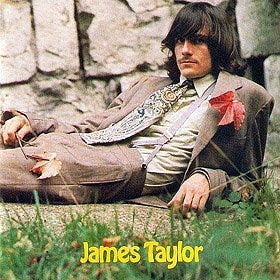

I’ll be looking up this gentleman’s tracks this morning to listen to!
Wow! Brad, this is another gem to add to your growing gem pile!! Love the insights here - anyone just starting out in the this business needs to hear this stuff!! Out of the park, brother!!!